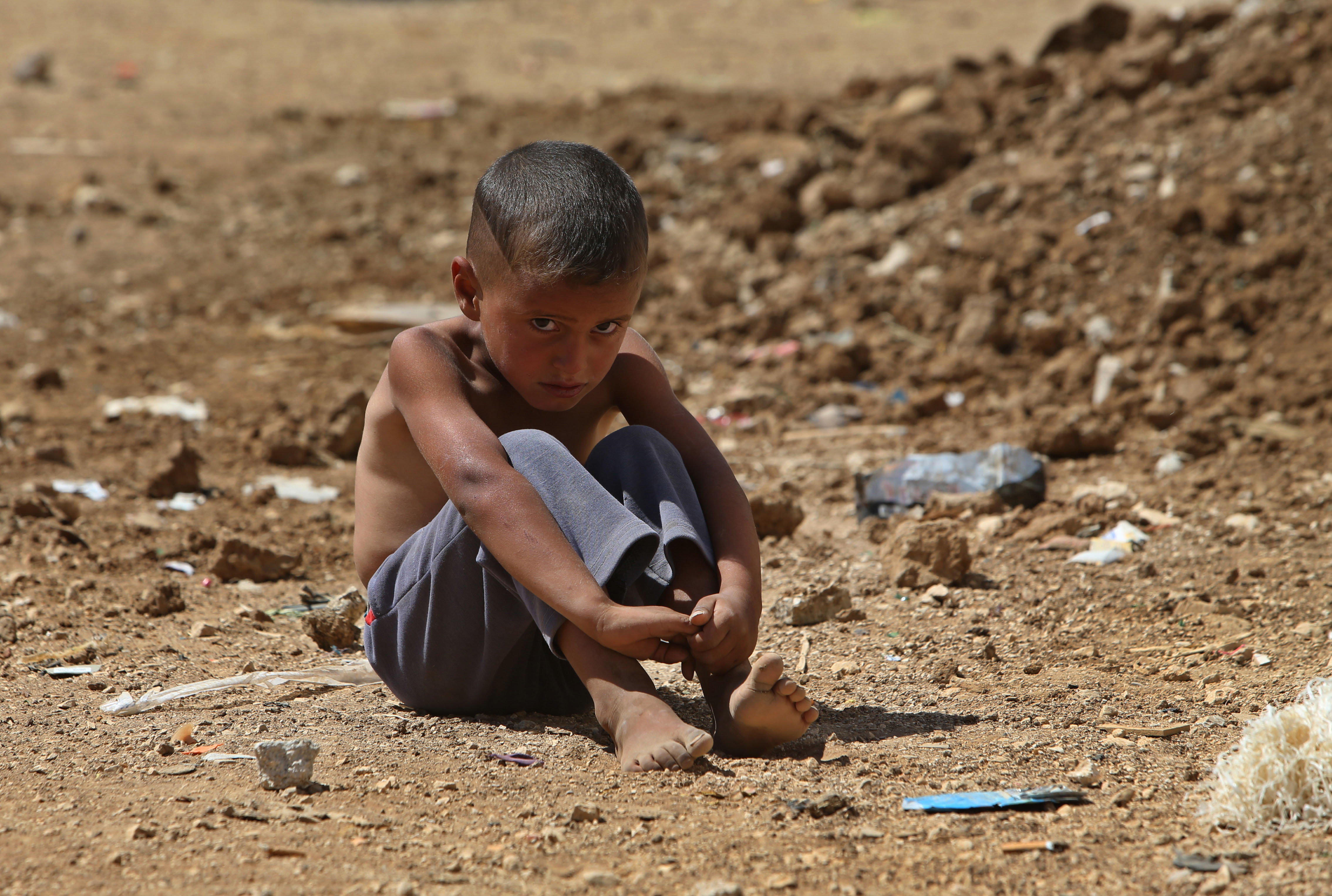As you come through the military checkpoints on the way into Wadi Khaled, local mobile phones bleep with an unsolicited text: "The Ministry of Tourism welcomes you to Syria."
This part of northern Lebanon, which juts like a knucklebone into Syria, is so close to the war that the villagers can watch the rockets land and the palls of smoke rising across the hillsides. Children have swarmed up on to the first floor of the shell of a half-built house and are pointing excitedly to where the outlying villages of Homs begin. "I can see our house," shout Satash, 6.
His mother Maro, 28, stands back with her eyes cast down. "The older girls come up here and spend hours and hours sitting and looking out at Syria. I cannot even look." Satash's home is in reality long gone. He now lives in Lebanon, in what used to be a shed for slaughtering chickens, with his parents and grandparents, his 3-year-old sister, and six orphaned cousins. The cousins' mother was killed by shelling that stopped the delivery of medicines to treat her sickness; their father died from shrapnel wounds.


















With your current subscription plan you can comment on stories. However, before writing your first comment, please create a display name in the Profile section of your subscriber account page.